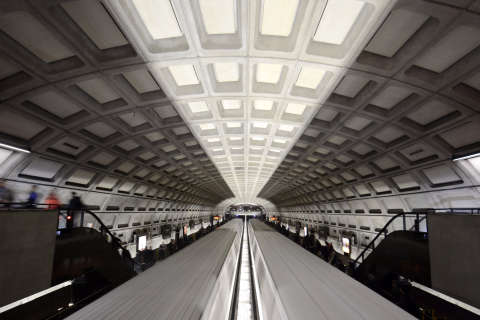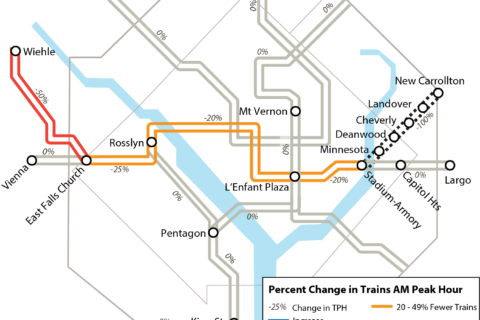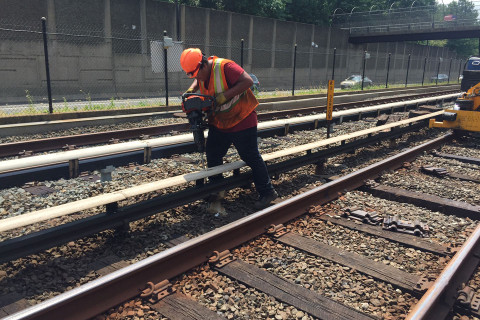ROCKVILLE, Md. — An effort to bring some limited short-term relief to commuters in the congested Route 29 corridor could leave Montgomery County on the hook for millions of dollars to Metro, the county’s transportation department warned a council committee Thursday.
The committee voted anyway to advance a proposal to add limited-stop MetroExtra bus routes between Castle Boulevard or Burtonsville, and downtown Silver Spring, by next March.
The buses would run until late 2019, when the county expects to launch its own bus rapid transit routes that will use the shoulder to zip around traffic for about 40 percent of the Route 29 portion of the route.
“I hear your concerns, but to me they seem theoretical and they seem unlikely to be shared by anybody standing at a bus stop in the rain today,” Councilmember Tom Hucker said.
“I think those people would probably welcome MetroExtra — whatever we want to call it — as long as they get to work sooner. And I don’t think they would be hung up on the long-term fiscal health of WMATA, and I don’t think they’d be hung up on whether or not it makes them more likely to ride BRT in the future; I think they just want to get to work sooner, and I think … we have an obligation to offer the best service we can, now,” Hucker said.
The county would need to pay Metro $170,000 to $250,000 in startup costs and $880,000 to $1.3 million in annual operating costs for the temporary service.
Chris Conklin, the deputy director for transportation policy for the Montgomery County Department of Transportation, warned that payment would shatter a two-decade old agreement by which the State of Maryland covers all costs associated with Metro, and the county pays for its own bus operations through RideOn. RideOn does not have extra buses available to provide this temporary service on its own.
“Oh my God, we’d have to change. Do something different,” Councilmember Nancy Floreen said sarcastically.
“We can change but this is probably not the time to change,” Conklin responded, citing concerns that, given rising Metro budgets, the state could ask the county to continue to pay. Virginia localities already pay their own share of the Metro budget, which has pitted local needs such as schools against Metro funding.
“To me that is a real concern,” Deputy County Council Administrator Glenn Orlin told the Transportation, Infrastructure, Energy and Environment Committee. He recommended advancing the funding to the full council for a decision, though, since he believes the project could be clearly designated as only temporary.
“It would help improve service on 29; is there a disagreement about that?” Floreen asked.
The committee voted 2-1 in favor of funding the temporary bus service, with Council President Roger Berliner opposed.
“I am very concerned about the bright line. I think once we raise our hand and say that we will fund WMATA service, we are in a deep, deep hole,” Berliner said.
“If I’m the governor, I go, ‘Well thank you very much, Montgomery County; you should fund much more of these services,’ and I don’t think the notion of ‘this is temporary’ is the answer that is going to be satisfactory, so I don’t see the quality of service enhancement that justifies the risk,” he said.
The temporary buses, while having fewer stops than the booming local bus services along Route 29 (Colesville Road/Columbia Pike), would still be stuck in traffic with everyone else.
“I think the risks we run are too great for the benefits we will achieve,” Berliner said.








